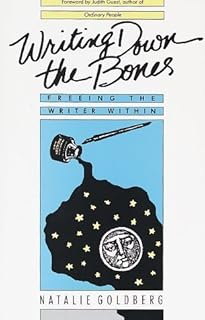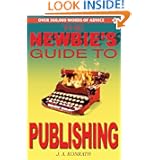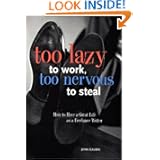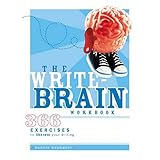"Any book is half what the author wrote and half what the reader brings to it."
- Catherine M. Wilson, Author
 Catherine
M Wilson is the author of the trilogy When Women Were Warriors. She has spent most
of her working life as an engineer of one sort or another (broadcast engineer,
software engineer) and people who know that side of her are surprised when they
learn about the writing side. Catherine says, “I like science and engineering
because I like to know how things work, and I like the arts because I like to
know how people work.” Catherine has now
retired from her other pursuits and is trying to catch up on her reading. She
lives in a mountain cabin in Central California.
Catherine
M Wilson is the author of the trilogy When Women Were Warriors. She has spent most
of her working life as an engineer of one sort or another (broadcast engineer,
software engineer) and people who know that side of her are surprised when they
learn about the writing side. Catherine says, “I like science and engineering
because I like to know how things work, and I like the arts because I like to
know how people work.” Catherine has now
retired from her other pursuits and is trying to catch up on her reading. She
lives in a mountain cabin in Central California.
Wilson's trilogy is about a hero Tamras who arrives at a warrior house to begin an apprenticeship as a warrior. This trilogy has the reader enter a world where women are in charge, strong, courageous, smart, and loving.
TradeMark Remark: Guest's job while camping. After reading her books, interviewing her, and getting to know Catherine M. Wilson better, I decided that Catherine would be in charge of Rituals and Traditions while camping. Her second duty would be 1st in charge if a battle erupted.
Here is the result of my wonderful opportunity to interview Catherine M. Wilson.
Is it
true that you have been training a clan of women warriors to take over California, and that your books are the foreshadowing to this?
Shhhh. It's a secret. Don't tell
anybody.
What was the transformation from broadcast and software engineer to author like? How did your friends and family react?
I became a writer late in life. I was 52 when I started writing and I finished the trilogy ten years later. Six months after starting the book, I was laid off from my software engineering job, so I thought I'd take a year off to finish it. Ten years later, it was done.
My friends thought I was loony to spend so much time writing a book, but they knew I was loony anyway, so they weren't surprised.
Unfortunately my mother died a few years before I started writing. I wish she could have read the book. She would have loved it. I owe my writing career to my mother, who loved books and thought the vocation of "writer" was the most important one in the world. I would put the vocation of "mother" first, "writer" second.
What is your advice to Indie Authors? On writing? Marketing?
Take it seriously. Read books on self-publishing, and I don't mean a little pamphlet that tells you a quick and dirty way to upload an ebook to Amazon. Learn about the industry. Most of all, write a good book. Take writing classes and get critiques from people who will tell you the truth.
Do you still write? If so, what does your typical day look like?
I'm not writing at the moment, but when I am working on something it goes like this:
Up at noon or so, the reason will become clear later.
Read email, eat breakfast, start reading through the last 5 or 6 chapters. The sixth chapter back may need some light editing, and as I proceed I get into more involved editing, until I get to the end and can start writing new material.
I usually don't write more than 500 words of new material before I run out of things to say, so I take a break, have dinner, watch TV, and at 11 PM or Midnight, I go back and read the new material, and then sometimes I can just keep going.
There's something about working at night. Even though I live out in the country, there are a lot of distractions, but between Midnight and 6 AM no one calls on the phone or knocks on the door or fires up a chain saw under your window. In those hours there is a kind of what I call a "psychic silence" that lets the little whispers come through. There have been nights when I looked up and thought, My, the moon is bright tonight, and then realized it was dawn. Hence the up-at-noon thing.
Do you have goals of a certain number of words a week or do you write when inspiration strikes?
I have tried to set goals, but word count doesn't work for me. If I'm writing just to get words down, I'm writing crap. I try for butt-time-in-chair. The more hours your butt is in the chair, the more work you'll get done, even if it's just fiddling.
You wrote on your website that you began to write your trilogy after visiting the Newgrange (a megalithic passage tomb in Ireland built over five thousand years ago).
Can you talk more about that?
I've always had an interest in
archaeology, so whenever I get a chance to see something ancient like Stonehenge or Newgrange, I'm
there! I have been to Stonehenge twice, but Newgrange was an amazing experience. I was there in
1968, before they did the restoration work. It was a blustery March day and the
caretaker was so happy to see people that he almost didn't let us leave. We got
to spend quite awhile inside (out of the rain), while nowadays you have to go
with a group to get in at all. I've always loved the picture taken of me in
front of Newgrange, because the bemused expression on my face tells the story.
That was a mysterious portal indeed, and at the time I was too young to get the
full force of the experience, but it left a strong impression on me as I became
more aware of the many years that humans have been creating things on this
planet.
If you could spend time with a character from your books whom would it be? And what would you do during that day?
I'd like to hang out with Gnith and just talk. For one thing, she reminds me of my grandmother, who would be 138 years old if she were alive today. She did make it to 96. Every time Gnith opens her mouth, my grandmother's voice comes out of it. Kind of eerie and comforting at the same time. And I bet Gnith would have a lot of good advice, if I could interpret it correctly.
On your blog you wrote about the
Lord of the Rings trilogy. You were comparing it to other books that try to
emulate it, but do not have the same soul. You wrote:
"If a book takes
you somewhere and you return to your everyday world moved, enlightened,
renewed, with new ideas, new perspectives, and a new appreciation of life,
you've found a great book, and it has nothing to do with ogres and trolls."
Your book had this effect on me. Do you get
similar feedback from readers?
Yes. And I'm thrilled when I hear
that from people, because when I was 21 and read Lord of the Rings for the first time, I wanted to live in Middle
Earth. That book informed many of my generation about what being a true warrior
is all about.
I very consciously wrote When
Women Were Warriors for the young women of the 21st century. I
believe this is our century--a century in which women will achieve true
equality and be respected for our many talents. It's time for a century of
peacemakers. One of my fans said that Tamras is a peace warrior. Very true!
You have
been part of the Civil Rights, Women's Movement, and Gay rights. What kind of
feedback have you received regarding the lesbian characters/world of your
trilogy?
One thing I do enjoy, in a perverse
kind of way, is reading my one-star reviews from people who can't handle the
"lesbian stuff." I think in a few years, those people may feel
somewhat embarrassed by their cluelessness.
What is the toughest criticism given
to you as an author?
I don't find criticism tough.
Anything anybody says is just one person's opinion. If a critic makes a good
case for or against something, I'll consider it, but it's my story, and I don't
let the opinions of others overrule my own. My editor (Donna Trifilo) will tell
you that she was at first frustrated when she remarked on something and then
watched me completely ignore her observation, but after awhile she realized
that her comments had made it into the book after all. The writer is weaving
whole cloth, and a patch shows up instantly, so any input has to be transformed
first by the writer's imagination or subconscious or whatever you want to call
it before it becomes integral to the story.
What has
been the best compliment?
I really can't think of just
one. Quite a few folks tell me they're reading the books for the 5th, 6th, 7th,
or 8th time. That's always great to hear.
Janis Ian gave the book a 5-star
review on Amazon, and since I admire Janis's work, it meant a lot when she
admired mine.
What is
something memorable you have heard from your readers/fans?
I've had several emails from
women soldiers in combat zones who told me that the books encouraged and
comforted them. Hard to beat that!
What
book that you have read has most influenced your life?
Aside from Lord of the Rings, I would have to say
that Testament of Youth by Vera
Brittain was an early influence. It was one of my mother's favorite books. She
read it in college and it profoundly changed the way she thought about war. She
was a true peace warrior. The irony is that she did get involved in WWII by
joining the Army, because some things are worth fighting for.
I read Testament of Youth in my 20s, and it's a profound portrayal of
what the First World War was like for women, many of whom served as nurses and
most of whom lost fathers, brothers, sons, or husbands.
Who is
your favorite author?
J. R. R. Tolkien. Jane Austen is
a close second.
What would you like to share
with writers, your readers, and fans?
I really appreciate it when
people write to tell me how my books affected them. People say the most amazing
things. I've always believed that any book is half what the author wrote and
half what the reader brings to it. When I hear that something I've written gave
someone an insight, or helped them understand another person or even
themselves, that makes my day!
Million dollar question: Are you working on another book?
I haven't written any other books, but I do have an idea for a new one. Given that it took ten years to write the trilogy, it probably won't appear anytime soon, but I am looking forward to seeing what shapes up.
When Women Were Warriors Facebook group:
Links to Book I (free) on Amazon, B&N, and Smashwords:
 Answers to the name Michele
Answers to the name Michele














